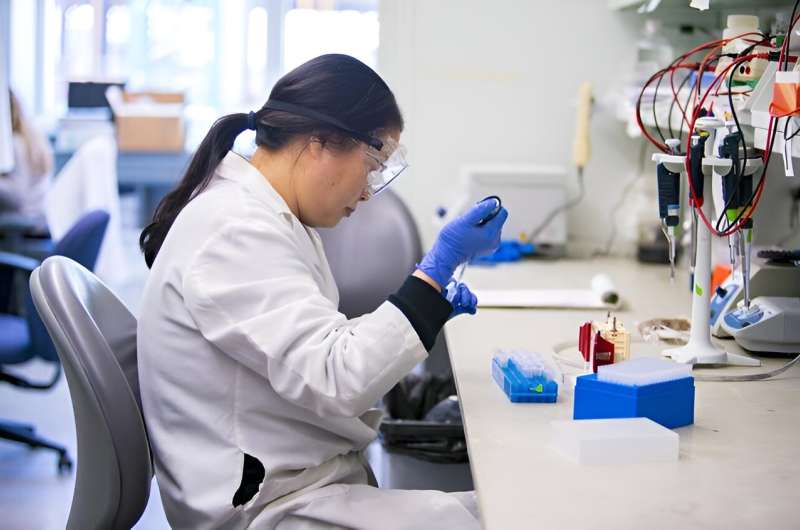This article has been reviewed according to Science X's editorial process and policies. Editors have highlighted the following attributes while ensuring the content's credibility:
fact-checked
trusted source
proofread
Research uncovers potential pathway for breast cancer treatment

A recent University of Kentucky Markey Cancer Center study published in Proceedings of the National Academy of Sciences uncovers a critical pathway involved in immune evasion by breast cancer cells.
The study, led by UK Markey Cancer Center researcher Yadi Wu, Ph.D., addresses a crucial gap in the understanding of how breast cancer fosters immune evasion and offers a new potential target for cancer therapies.
The research suggests a chain reaction between three different proteins—CDK9, RNF20 and LSD1—helps breast cancer cells evade the immune system. By disrupting this chain, researchers made the cells more susceptible to immunotherapy treatment.
"The results suggest targeting this pathway in the development of cancer therapies," said Wu, an associate professor in the UK College of Medicine department of Pharmacology and Nutritional Sciences. "This new knowledge could potentially lead to more effective breast cancer treatments for patients."
Cancer cells can avoid immune detection by manipulating genetic signals. One such way is through LSD1, a protein involved in regulating gene expression. High levels of LSD1 are found in many cancers and are linked to worse outcomes for patients. Studies show that blocking LSD1 can help immune cells fight cancer more effectively.
The lab study on breast cancer cells revealed that CDK9, another protein involved in regulating gene expression, plays a crucial role in stabilizing LSD1 and therefore causing immune suppression. This stabilization is achieved through a process involving the third protein, RNF20.
When researchers disrupted this interplay by removing RNF20, breast cancer cells became sensitized to a type of immunotherapy treatment called anti-PD-1.
"This discovery is a significant step forward in our understanding of how cancer cells evade the immune system," said Wu. "Our findings highlight the potential importance of targeting the CDK9-RNF20-LSD1 pathway in the development of new cancer therapies, specifically immunotherapies."
More information: Bo Dong et al, RNF20 contributes to epigenetic immunosuppression through CDK9-dependent LSD1 stabilization, Proceedings of the National Academy of Sciences (2024). DOI: 10.1073/pnas.2307150121




















